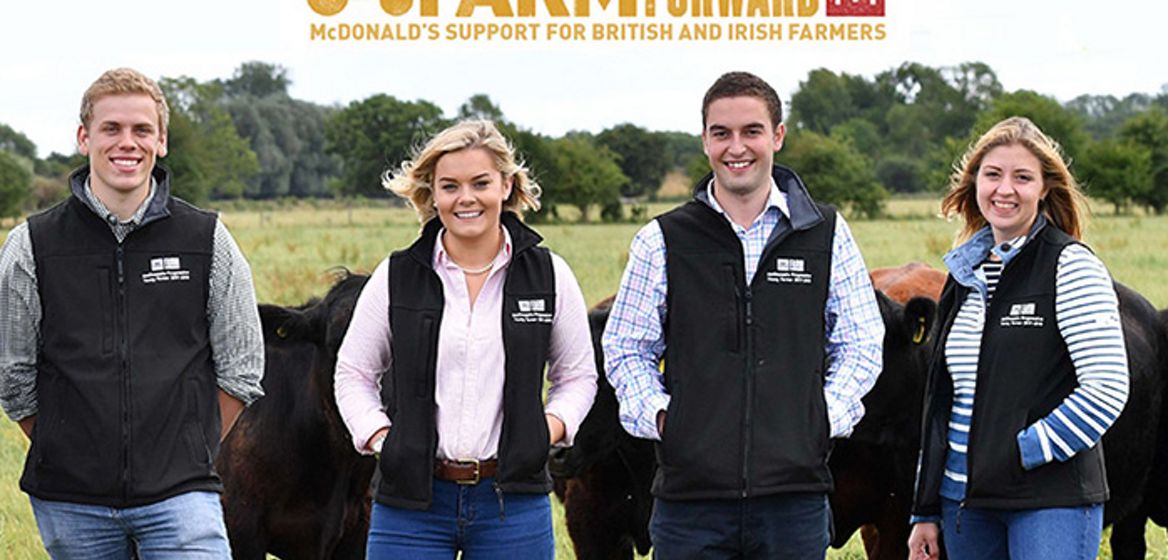In the UK, young people’s interest in farming is low – but McDonald’s has a plan
August 27, 2019
Did you know that the average age of a farmer in the United Kingdom is over 50?
How about that just 3% of UK millennials (18- to 30-year-olds) view farming and agriculture as a desirable career?
As a food company, that’s not news we like to hear. But with our size and scale, we have a real opportunity to change young peoples’ attitudes and plans around farming.
And we’re already making progress, according to Alice Willett, a member of our UK &
Ireland Sustainable Sourcing team. As of this July, 27 young people will have graduated from McDonald’s Progressive Young Farmers program, which is designed to help students develop the skills and knowledge they need to succeed in today’s farming sector – including business skills, technological know-how and an understanding of consumer demands.

Starting this month, nine more students will participate in the Progressive Young Farmers program throughout the UK and Ireland.
“In order to make the food that we’re famous for, we rely on over 23,000 British and Irish farmers,” Alice explains. “We’re committed to both their futures and the future of the farming industry, which is why we work closely with them, building relationships and investing in research that aims to change farming for the better. Developing skills and knowledge within the agriculture sector is very important for its future, and we want to shape the future leaders of the industry.”

How it works
Having successfully rolled out our Farm Forward program in the UK – which aims to support farmers in developing agricultural skills and knowledge, raise animal welfare standards and make environmental improvements in farming – we decided we could be doing more to support farmers of the future.
So, Progressive Young Farms was born in 2012. The 52-week program is intended to equip students who are between their second and third years at university with the knowledge and practical expertise required to successfully work on a farm and in the wider supply chain.
For the first four months of the year, the students spend time working on a farm to learn farm business management, as well as what it really takes to make a McDonald’s product (whether it’s beef, eggs, potatoes, chicken, dairy or pork). Then, the students spend three months working with a supplier at a processing facility. Our hope is that they’ll learn firsthand from the suppliers and ultimately truly understand the supplier’s business.
After that, the students attend the Oxford Farming Conference as a fully-paid scholar before spending another four months on the farm. Before their time in the program comes to an end, the students spend three days working as McDonald’s crew members in Central London restaurants and then give presentations about their overall experiences at the McDonald’s UK office.
On top of that, the students complete year-long projects that can be used as their dissertations at university.
“The young farmers really enjoy their year,” Alice says. “The program is really well-received in terms of what it delivers for the students.”
‘A fantastic program’
It’s important to note that although most of the students who have participated in the Progressive Young Farmers program are studying something agriculture-related, not all of them are from farming backgrounds. And every student who participates in the program comes away with a thorough understanding of the important role McDonald’s plays in British and Irish agriculture.
“We’re creating brand advocates,” Alice says. “I think it’s a fantastic program.”
To learn more about Progressive Young Farmers and the UK and Ireland’s Farm Forward program, click here. Curious about how McDonald’s is using its Scale for Good across all Food Sourcing? Click here.

